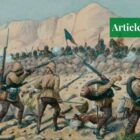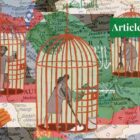The writer is an undergraduate at International Islamic University Islamabad in the department of
Politics and International relations.
Today, almost 44 years later, Zulfikar Ali Bhutto is still celebrated as a great democrat who was unfairly executed by the brutal dictator Zia-ul-Haq. Yes, Bhutto was hanged unfairly. Yes, he didn’t get the right to a fair trial. But what brought Bhutto from the throne to the gallows?
Let’s delve deep to analyze Bhutto’s way of politics. Was he truly a democrat or just an autocrat disguised as one?
It was 1971 when Pakistan finally conducted its first general elections, 23 years after acquiring independence. After 11 straight years of martial law, this election was seen as a beacon of hope for democracy by millions. But things went awry.
Sheikh Mujibur Rahman of the Awami League won by a landslide. His party bagged 160 out of the 162 general seats and all 7 women seats in East Pakistan (current Bangladesh). While the Pakistan People’s Party (PPP), led by Bhutto, won 81 seats and 5 women’s seats in West Pakistan. Power should have been transferred to the Awami League. But things took a turn for the worse when Zulfikar Ali Bhutto, head of the second-largest party in Pakistan, refused to accept the results.
“The keys of the Sindh and Punjab assemblies are in my pocket, and no government can be formed without the coalition of the PPP.”
Zulfikar Ali Bhutto
After much dilly-dallying, the decision was made to hold the first session of the National Assembly on March 3rd, 1971. Bhutto addressed his party members in Lahore and warned them not to attend the session. He threatened his members by saying, “If any of the PPP members decide to go, they should do so on a one-way ticket as they wouldn’t be allowed to return to West Pakistan, and their legs would be broken.”
It didn’t end there. During the same notoriously threatening speech, Bhutto held up the hand of one of his party’s senior members, Mian Mahmud Ali Kasuri, and said, “Not only your legs but your hands will also be broken.” Is this a democratic attitude? Does this undemocratic rhetoric suit the head of the second-biggest party? Of course not.
In fact, during those decisive moments, Bhutto made irresponsible demagogic statements that further deteriorated the situation. His statements fully reflected his authoritarian mindset. Bhutto became so power-hungry that he was willing to get the seat by hook or by crook. His undemocratic attitude was one of the factors that led to the fall of Dhaka in the 1971 war.
After assuming power, Zulfikar Ali Bhutto further showed his authoritarian tendencies. He ordered the police to deal heavily with the masses that emerged after his disastrous nationalization policies. He used police and paramilitary forces to quell protests. Despite Bhutto’s direct orders, then-Army Chief General Gul Hassan refused to comply. Finally, differences went so far that Gul Hassan Khan was forced to retire. What followed his retirement was even more shameful. Bhutto appointed General Tikka Khan—notorious for his brutality and known as “the butcher of East Pakistan.”
Bhutto started monitoring the army officers, and those who had a soft corner for the opposition were denied promotions.
Fast-forward to 1973, Bhutto’s government concocted an Iraqi embassy case and toppled the first democratically elected government of Sardar Akhtar Mengal in Balochistan. The ousting of Mengal’s government led to widespread dissent. Bhutto ordered the military to crush the protests. The army, which was on its back foot after the debacle of Dhaka, was once again brought to the front by Bhutto. The operation continued for four years, resulting in the killings of 3300 army officers and 5300 Baloch civilians. Not only this, Bhutto tasked the military to undertake development projects in Balochistan. The seeds of hatred sown by Bhutto in Balochistan have now grown into a sturdy tree.
It’s worth discussing that when the government was dismissed, the National Awami Party (NAP) was squarely enjoying a majority with 21 seats in the Baloch assembly as opposed to the 7 seats of the opposition. Bhutto ruled Balochistan with these 7 seats after Mengal’s removal—although his party did not have a single seat in the provincial assembly because Bhutto’s government did not have a majority in Balochistan. The budget of Balochistan was passed on Radio Pakistan that year—for the first time in Pakistan’s history.
During Bhutto’s era, top NAP leaders like Sardar Attaullah Mengal, Abdul Wali Khan, Khair Bakhsh Marri, and Mir Ghaus Bakhsh Bizenjo were arrested, and the party was banned. Popular Baloch and Pakhtoon leaders were put behind bars, NAP’s offices were shut down, assets were frozen, and records were seized and destroyed. Wali Khan and his 58 colleagues were tried in the “Hyderabad conspiracy case” during Bhutto’s so-called democratic era—the irony is that Zia acquitted them, and all cases against them were withdrawn by the state.
As President of Pakistan, the power went to his head. Bhutto launched the Federal Security Force, briefly known as the FSF. Directly under the government’s control, a force of 15,000 officers served as Bhutto’s private army. He used that force to repress his political opponents. FSF’s goons’ involvement in the assault of PPP’s founding member and his son, the murder of Nawab Muhammad Ahmed Khan Kasuri and Doctor Nazeer Ahmed of Jamat-e-Islami at the behest of Bhutto reflected his dictatorial mindset.
Bhutto didn’t want any opposition; he wanted to repress them and expressed this on multiple occasions. He used the FSF to keep a strict check on political opponents. One of the incidents where FSF resorted to violence was the firing at Liaqat Bagh on March 23rd, 1973, where a political rally was being held. Wali Khan narrowly escaped with his life while dozens were injured. Based on the intelligence provided by the FSF, many political activists were arrested and persecuted.
Bhutto’s dictatorial tendencies, intolerance for the opposition, military action in Balochistan, use of excessive force to crush protests, and greed to consolidate his power were among many notable factors that took him from the throne to the gallows. While taking these steps, he didn’t realize that it was nothing other than shooting himself in the feet.
Appointed as Pakistan’s foreign minister in 1963, Bhutto proved himself a seasoned diplomat. Credit goes to him for defeating Indira Gandhi on the table, bringing back 90,000 prisoners of war (POW), uniting the Muslim world under one roof in 1974, and making Pakistan an atomic power. Yes, he was a knowledgeable ambassador, both shrewd and intelligent, but not a parliamentarian. It goes without saying that although Bhutto was denied a fair trial, what he did during his tenure wasn’t democratic either.
Bhutto was sentenced to death on April 4, marking a tragic chapter in Pakistan’s history. His story serves as a stark reminder of the persistent mistakes that continue to haunt the nation. George Hegel rightly said, “We learn from history what we don’t learn from history.“
If you want to submit your articles and/or research papers, please check the Submissions page.
The views and opinions expressed in this article/paper are the author’s own and do not necessarily reflect the editorial position of Paradigm Shift.















